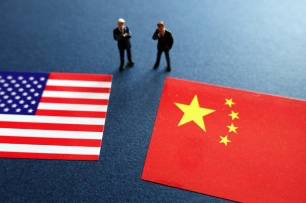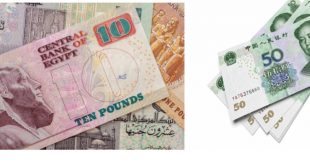Published: April 03,2023
By JAN YUMUL

Reclassification may lead to severe economic repercussions, experts say
The US’ attempt to reclassify China as a “developed country” is misleading and may have severe economic repercussions, analysts said.
On March 27, the US House of Representatives unanimously passed the PRC is Not a Developing Country Act, which would require the State Department to take action to change China’s status to one of a developed country.
Sujoko Efferin, a professor at the Faculty of Business and Economics at Universitas Surabaya in Indonesia, said the bill has been based on the “totally wrong assumption” that China’s competitive advantage is due to the United States’ preferential treatment of it as a “developing country”.
“The sources of China’s economic strength are its integrated supply chain, innovation, excellent coordination between China’s governmental programs and business developments, as well as an entrepreneurial mentality that the US or its allies cannot match,” Efferin said.
If enacted, the bill could impact China’s standing in international bodies like the World Trade Organization, which provides developing countries with preferential treatment, observers say.
Lucio Blanco Pitlo III, research fellow at the Asia Pacific Pathways to Progress Foundation, said it would be interesting to know what economic or financial metric will be used to justify the reclassification and whether this will be uniformly applied to other fast-emerging economies.
“While China ranks second to the US in terms of GDP, its large population makes its GDP per capita way below that of the US and many European countries. Even Panama and Costa Rica ranked higher than China by this yardstick,” Pitlo said.
“Aside from economic and financial repercussions, it would also undercut China’s branding as a leader of the Global South — a fellow developing country providing public goods such as infrastructure and lessons on poverty alleviation to the world.”
In her speech on March 27, US Representative Young Kim alleged that China was exploiting its status by applying for development assistance and loans, while spending trillions on infrastructure projects in developing countries as part of what she called “the debt trap diplomacy scheme known as the Belt and Road Initiative”.
“I think this is nonsense. BRI is a flagship project. China has got no interest in bankrupting developing countries because that just brings the whole scheme into disrepair. China’s got every interest in making sure that does not happen,” Martin Jacques, a senior fellow at the University of Cambridge, said.
Alessandro Golombiewski Teixeira, former Brazilian minister and economic adviser to the president of Brazil, said the BRI has helped other developing countries a lot “as a collaboration platform”.
The US is trying to put China on a different level because they want to frame China with different policies.”And I think that’s wrong. I think China needs to continue because in many areas China has achieved developments, but it is still a developing country,” he said.
Deniz Istikbal, economics researcher at the Foundation for Political, Economic and Social Research in Turkiye, said China is still a developing country. It has been successful in many industries and sectors like agriculture over the last 50 years, but it still needs to improve in many areas.
Istikbal said he disagrees with the debt trap accusation, which he said comes from bias. “When a Western country invests in underdeveloped (countries), that’s fine and the Western country is ‘doing great’. But if China did something, it is wrong,” he said.
Efferin said research has found that debts owed by countries such as Sri Lanka are “dominated by Western creditors” and not the Chinese government or banks.
“China has freed African countries from their debts, something that Western creditors have never done,” Efferin added.
China Daily
 Africa -China Review Africa -China Cooperation and Transformation
Africa -China Review Africa -China Cooperation and Transformation
